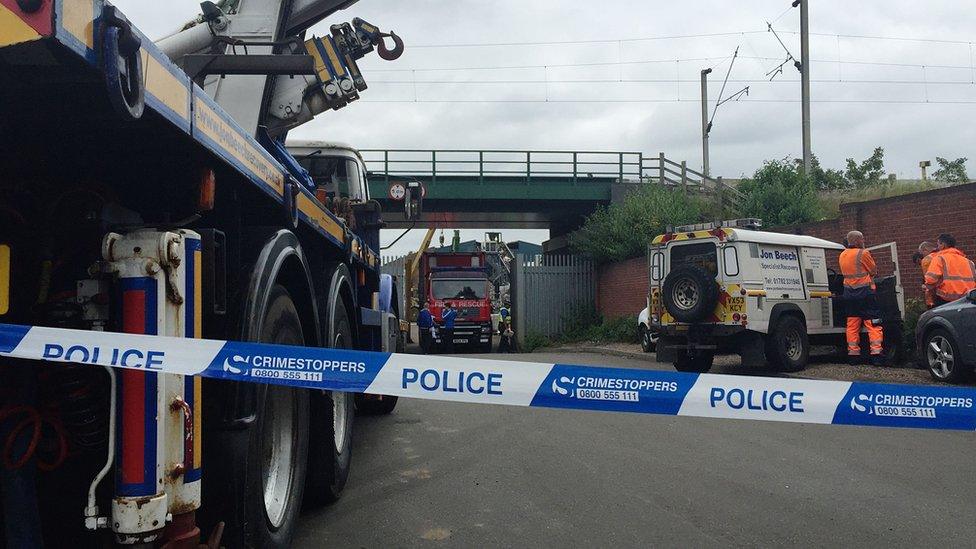Birmingham wall collapse deaths: Survivor 'traumatised' by what he saw
- Published
Wall collapse widow says her husband was a "very hard-working man"
A man who saw five colleagues die when a 15ft concrete wall collapsed on them at a scrap yard says he relives the moment every time he closes his eyes.
One year on since the men from Gambia and Senegal were killed at Shredmet Ltd in Birmingham, their families are still waiting for answers.
Police and the Health Safety Executive (HSE) are still investigating and inquests are yet to be held.
Survivor Basamba Darama said he will never forget what he witnessed.
Ousmane Kaba Diabi, 39, who was from Senegal, Alimamo Kinteh Jammeh, 45, Bangally Tunkara Dukureh, 55, Saibo Sumbundu Sillah, 42, and Muhamadou Jagana Jagana, 49, all Spanish citizens, died in the incident.
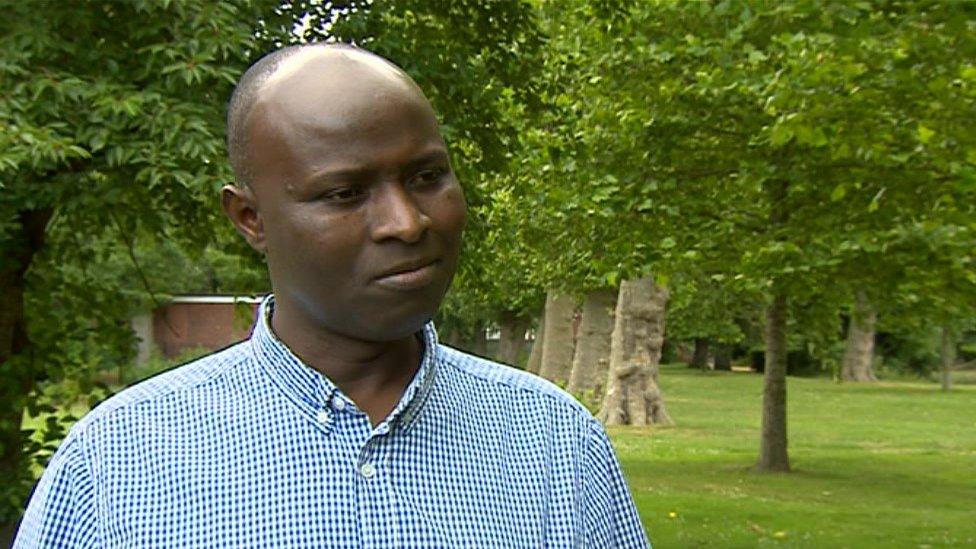
Basamba Darama said he was lucky to be alive
The men had come to the UK to work, some with their families, and were employed along with other Gambians at the scrap metal plant in Nechells.
Mr Darama said he was one of the workers sweeping up piles of waste metal against the wall when it collapsed on 7 July last year.
As he walked away from his friends, he turned to see them suddenly buried under concrete blocks, each weighing 1.5 tonnes, and then scrap metal, which was behind the wall, pour on top of them.
"I ran and I was confused because I didn't see anyone. The blocks were lying down on them," he said.
"I thought I was going to go crazy. I've never seen this kind of thing before in my life.
"They are my colleagues, we work together, we are friends... and they are dead."
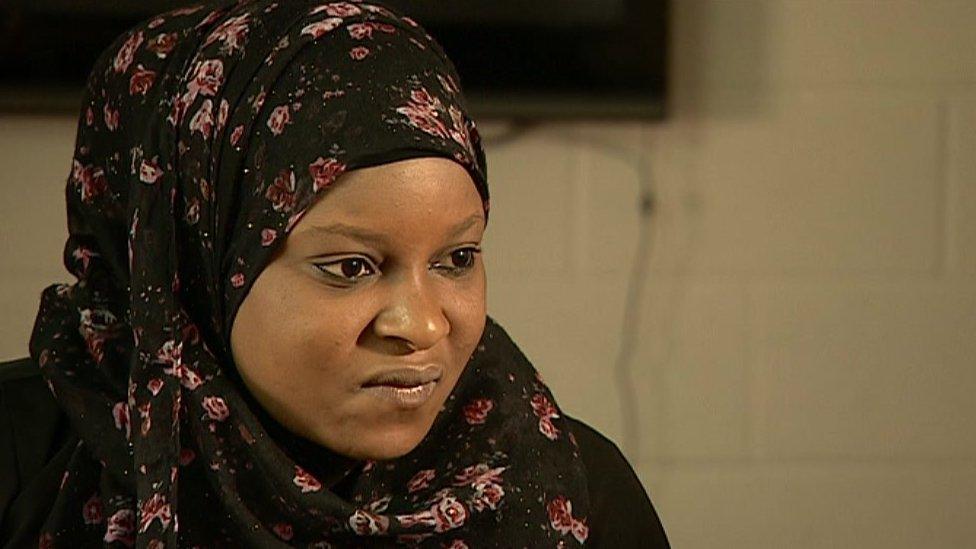
Hawa Kaba Dukureh had been in the UK for nearly four years with her husband Bangally Tunkara Dukureh before his death last year
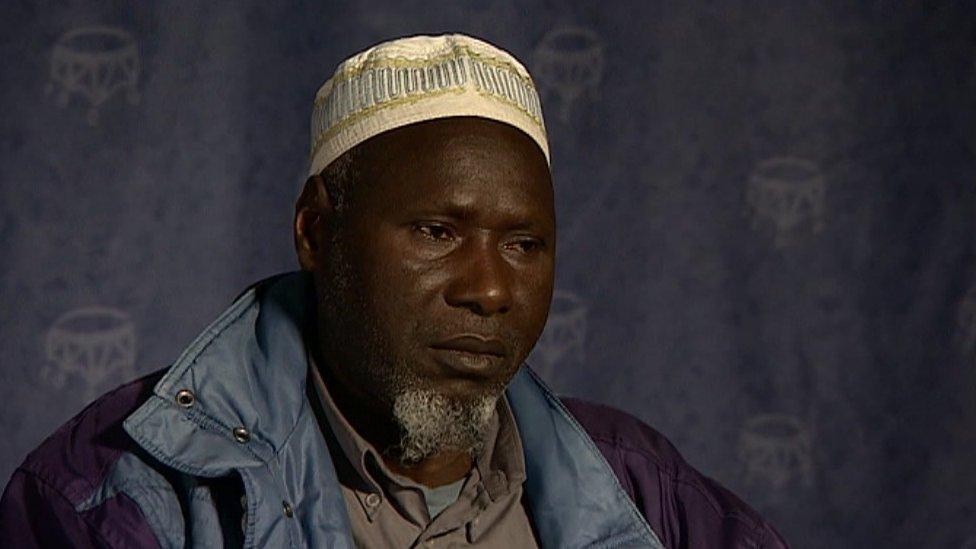
Tombong Camara Conteh said he did not know how he had escaped
Mr Darama, who still works at the plant, said he was very traumatised by what he saw.
"I'm working there because of my family and I have to. My family has to survive. I don't have a choice.... at night I close my eyes and it's still happening."
Tombong Camara Conteh survived the collapse but suffered a broken leg.
"I remember lying down and others buried under the rubble. I couldn't move I could just hear noise and from then until now I keep thinking how did it happen and how did I get away?"
He said his life has been "turned upside down" since as he has been unable to work since because of his injury. He now relies on friends for support.
The families said they were frustrated at the length of time the investigation was taking.
Hawa Kaba Dukureh, the 42-year-old wife of Mr Dukureh, said: "Since the incident took place, I've never had any answers from anyone about why my husband died this way.
"I am very sad... I have not stopped thinking about him."
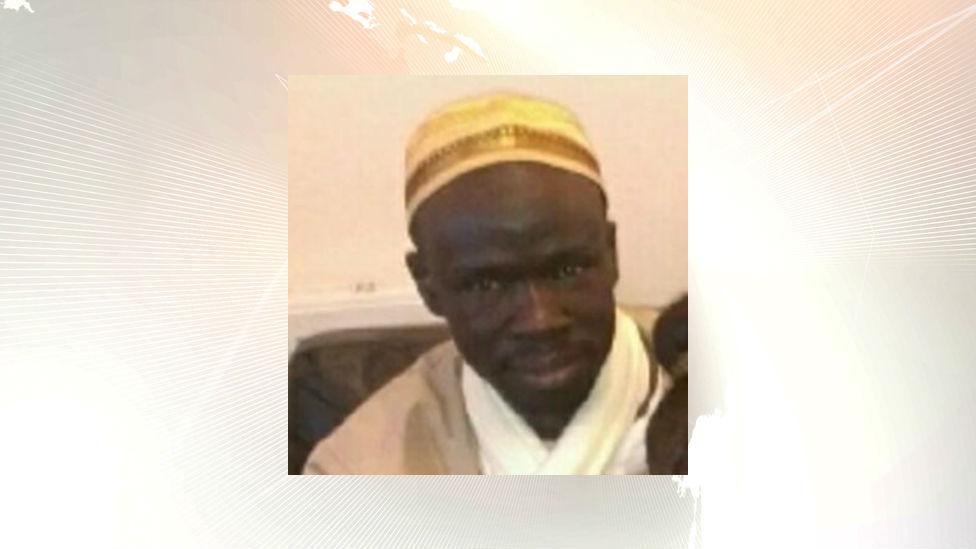
Alimamo Jammeh was due to collect keys for a new home and his wife and family were due to fly into the UK days after the incident
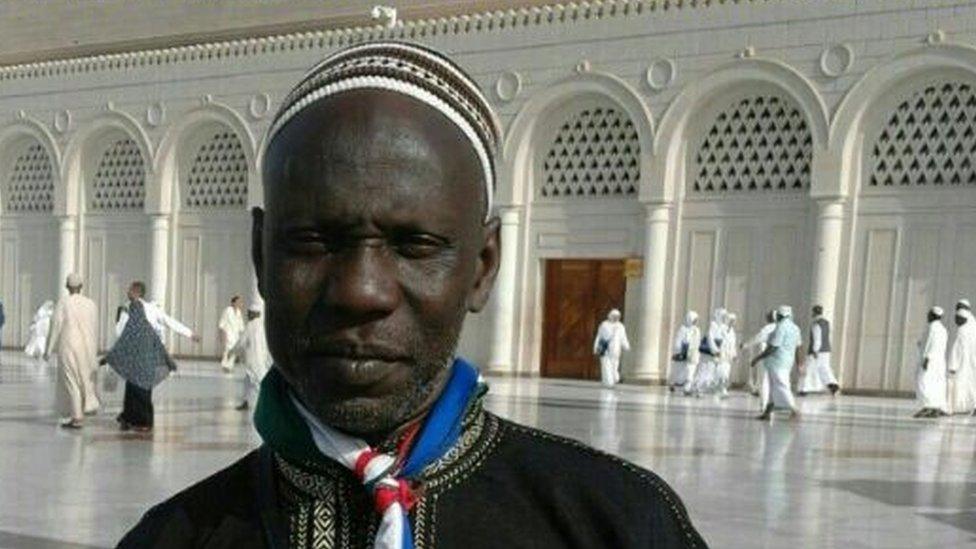
Bangally Tunkara Dukureh died after coming to the UK to work
Ousman Njie, project manager with the Gambian Association, a community group for the 5,000 Gambians in Birmingham, said: "We think it [the investigation] should have been better than how it is now, but because of legal matters we can't say much but we hope it can be done as quickly as possible.
"We would like it to move faster than it is so families know. It's not easy for them to wait and wait."
In the aftermath of the deaths, the Gambian Association and the Birmingham Mail both started fundraising campaigns, external which yielded almost £30,000.
The money paid for the £25,000 cost of repatriating the bodies to Gambia and was dispersed among the families, something the Gambian community said was very much appreciated.
The fundraising continues as the families continue to struggle.
Lang Dampha, a relative of Mr Jammeh said support for the families was vital.
"The funds we have created within ourselves are basically running out," he said. "We are not getting any other funding from any other place for the families.
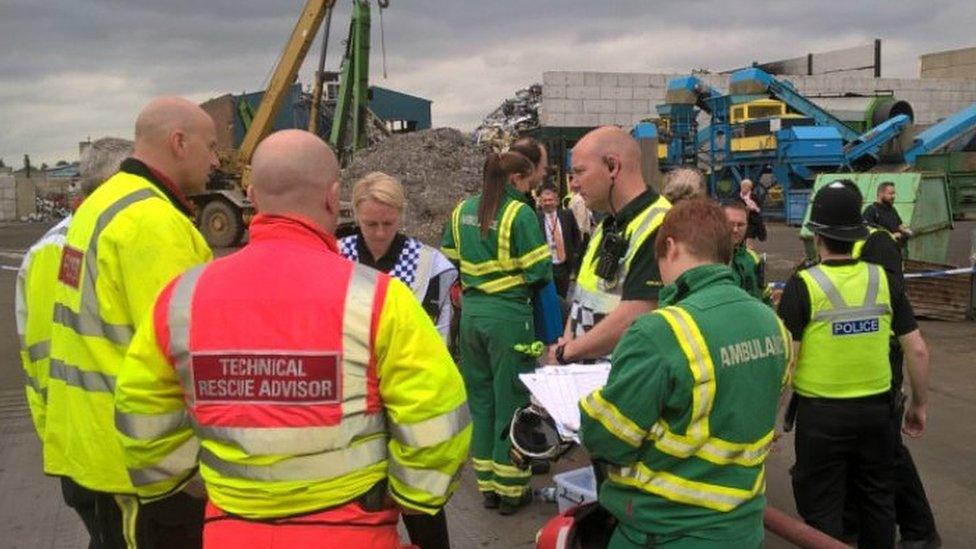
The bodies of the men were recovered several days after the wall collapsed
"The widows are not working... they are living with other people, they don't even have any accommodation. They are struggling big time."
Lamin Sonko, secretary of the Gambian Association, added: "These people were living in Spain and Europe for almost 20 to 30 years and they come here to better their lives and their families and during that course this happens. It is really sad."
At the time, Shredmet Ltd, which deals with more than 500,000 tonnes of scrap metal each year, said the wall had been in place for more than two years and had not been subject to any damage that could have caused the collapse.
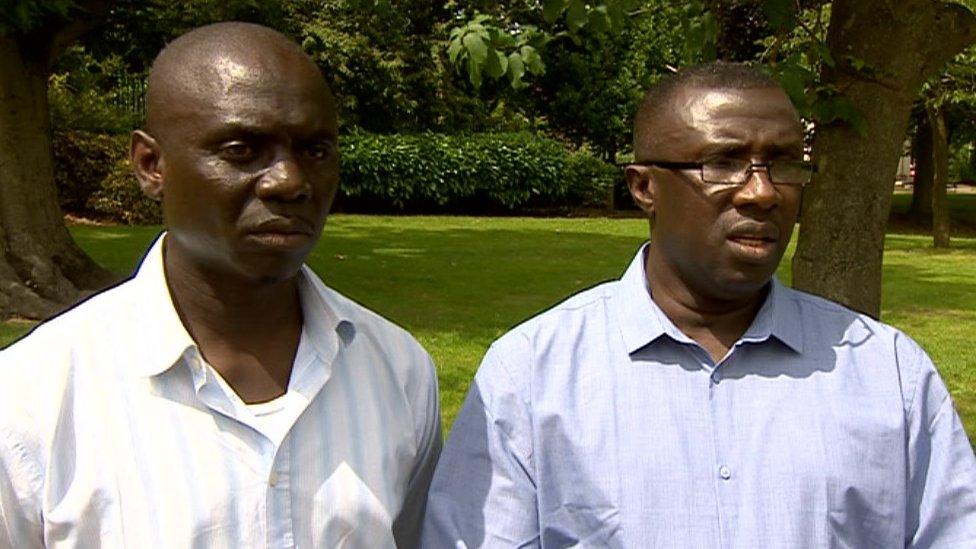
Ousman Njie and Lamin Sonko say the men came to the UK for a better life
The site was closed for six weeks after the incident.
In a statement, the company said it remained "utterly devastated" by the incident and was continuing to cooperate with the investigation.
It said it was "still in the dark" as to the overall collective causes of the incident.
A HSE spokesperson said it was continuing to support West Midlands Police's investigation. The force said it had passed a file to the Crown Prosecution Service (CPS).
The CPS said it was providing "investigative advice" to West Midlands Police.
- Published8 July 2016
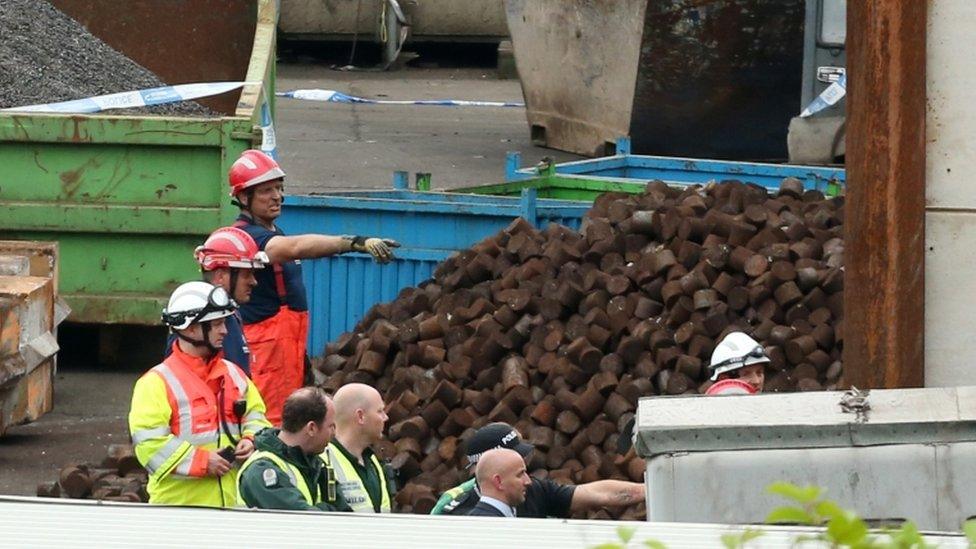
- Published7 July 2016
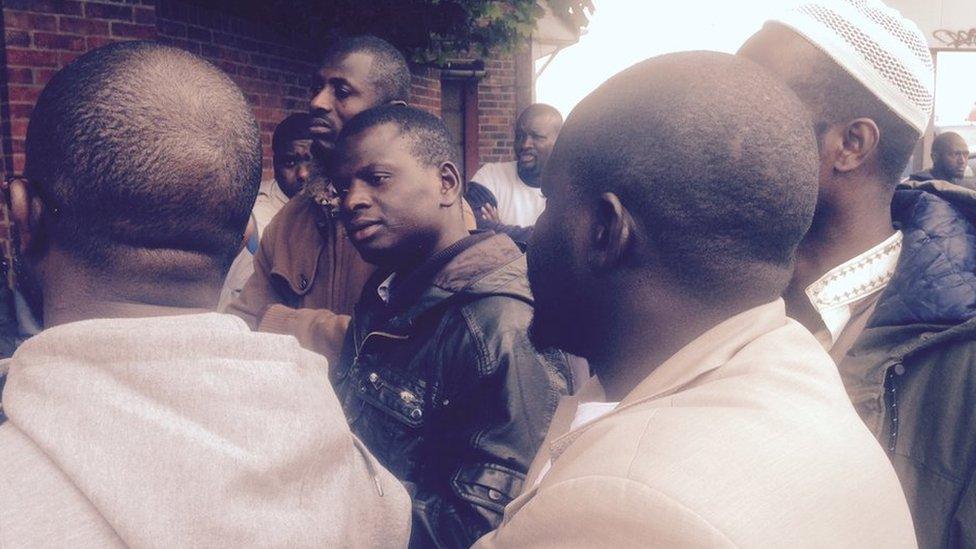
- Published7 July 2016
